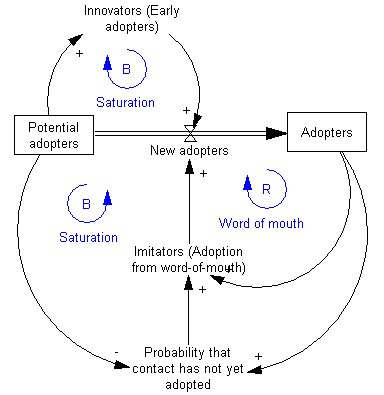Industrial Dynamics Jay Forrester Pdf Viewer


Management of countries and industries has developed over the centuries as an empirical art. During the last half century a management science has begun to develop but is not yet an effective basis for dealing with top-management problems. Just as the merging of physical science and engineering in the last twenty-five years became the basis for the modern upsurge in technology, so will the development of a foundation structure of industrial and economic behavior provide a new dimension in management effectiveness in the next twenty-five years. The manager's task is far more difficult and challenging than the normal tasks of the mathematician, the physicist, or the engineer. In management, many more significant factors must be taken into account. The interrelationships of the factors are more complex.
The systems are of greater scope. The nonlinear relationships that control the course of events are more significant.
Download Industrial Dynamics by Jay W. Forrester pdf, in that case you come on to the loyal website. We have Industrial Dynamics ePub, doc, DjVu, PDF, txt formats. Invented in the 1950s by Jay W. A PDF is something you possess. Modelo De Simulacion Dinamica Tren De Turbocompresion. Author by: Wolfgang Bauer. Search program with Files Library Toolbar and download Free. Quick PDF Library Lite is a completely Free PDF SDK. Industrial Dynamics Software, Jay W. Librivox Free.
Software Resetter Printer Epson L100. Change is more the essence of the manager's environment. In the past the arts, the sciences, and the traditional professions have been placed on an intellectual pedestal with a status above the study and practice of management. The illusion that the study of management lacked intellectual challenge has arisen, not because the field of management is wanting in unexplored frontiers, but because the intellectual opportunities were not recognized and the problems lay beyond the reach of traditional analysis methods. Our most challenging intellectual frontier of the next three decades probably lies in the dynamics of social organizations, ranging from growth of the small corporation to development of national economies.
As organizations grow more complex, the need for skilled leadership becomes greater. Labor turmoil, bankruptcy, inflation, economic collapse, political unrest, revolution, and war testify that we are not yet expert enough in the design and management of social systems. I.1 Management as an Art Management is in transition from an art, based only on experience, to a profession, based on an underlying structure of principles and science. Any worthwhile human endeavor emerges first as an art. We succeed before we understand why. The practice of medicine or of engineering began as an empirical art representing only the exercise of judgment based on experience.
The development of the underlying sciences was motivated by the need to understand better the foundation on which the art rested. The relationship between the growth of an art and the underlying science is illustrated in Figure I-1. The art develops through empirical experience but in time ceases to grow because of the disorganized state of its knowledge. When the need and necessary foundations coin.



